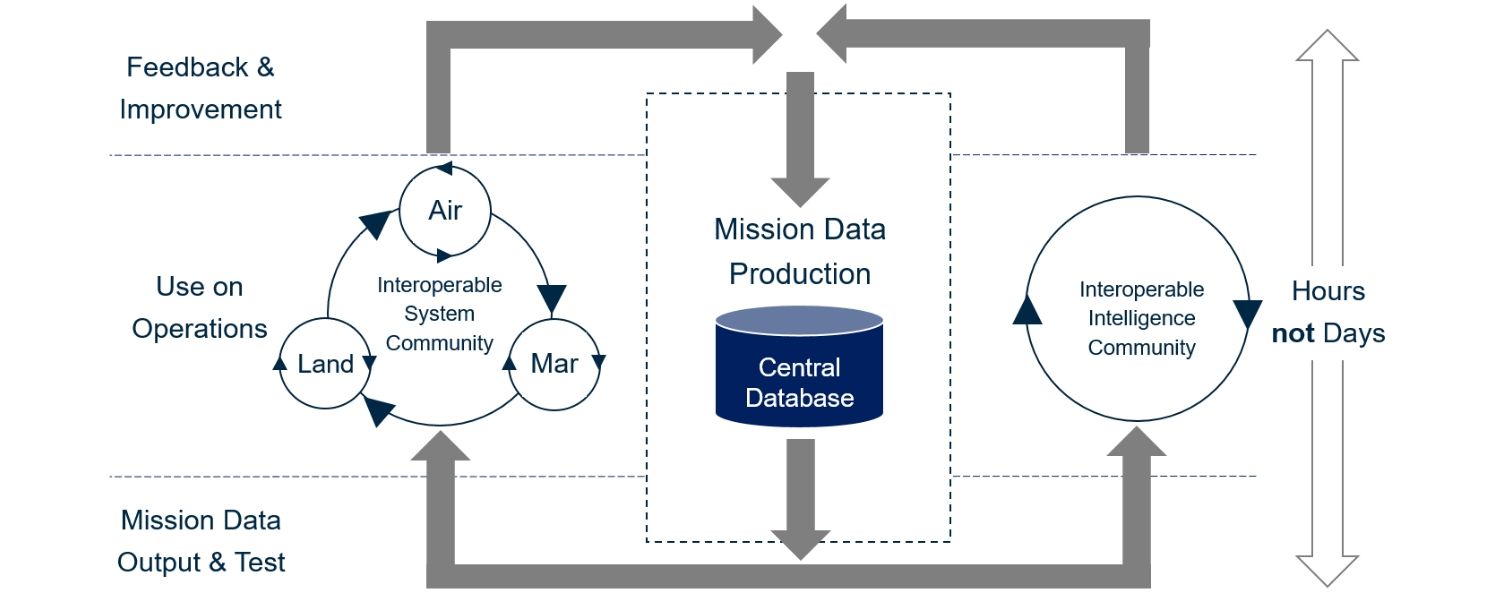The term Mission Data for Information Advantage is where the maturity and operational effectiveness of a force’s Mission Data brings about favourable operating conditions for the host system/platform, thereby increasing levels of information gained/shared and creating an advantage.
Effective Mission Data is achieved through assured data sources, timely and agile production and test processes, advanced deployed technologies, highly trained operatives, performance feedback and unified governing policies. With effective Mission Data, a force is able to increase dominance and persistence in a chosen environment thereby gathering greater levels of information about an adversary or situation and securing an information advantage. This information can then be shared as part of an interoperable community of friendly systems and intelligence communities creating a potent operational advantage. By maximising the effectiveness of deployed equipment and technology in this way, forces can deliver more precise and timely effects whilst minimising operational risk and protecting human life.
Achieving Mission Data for Information Advantage
People
No one organisation or body of people can achieve future mission data requirements alone. A flexible, agile and Whole Force approach will be achieved through investing in people, embracing inter-generational strengths, establishing long-term sustainable partnerships and a cultivating a diverse supply chain of companies.Technology
Equipping people with the most effective tools and technology through agile and flexible procurement processes will ensure forces keep-pace or out-pace adversaries in a rapidly evolving operational environment.Speed & Agility
The speed at which Mission Data can be produced, distributed, re-analysed (post-mission), fed-back and refined will be a key enabler. The goal is for this to occur in hours not days. In an ever changing technical and political landscape, change will occur more frequently and so an agile mind-set must be adopted.Processes
Mission Data production processes need to be as expedient and innovative as possible whilst also being assured and governable to maintain confidence, cohesion and wider interoperability.Interoperability
Developing pan-domain (Air, Land & Sea) procurement policy in relation to data will positively influence mission systems’ data characteristics and ensure maximum future system interoperability. This will create the favourable conditions for data sharing and refinement on-mission as part of a wider community of systems.Collaboration
Defence industries and governments must work together more collaboratively as part of flexible and outcome focused partnerships. Monopolising behaviours will not encourage growth and so frameworks such as ‘Pegasus’ will ensure the ‘best athlete’ prevails. Download more information on collaboration.
